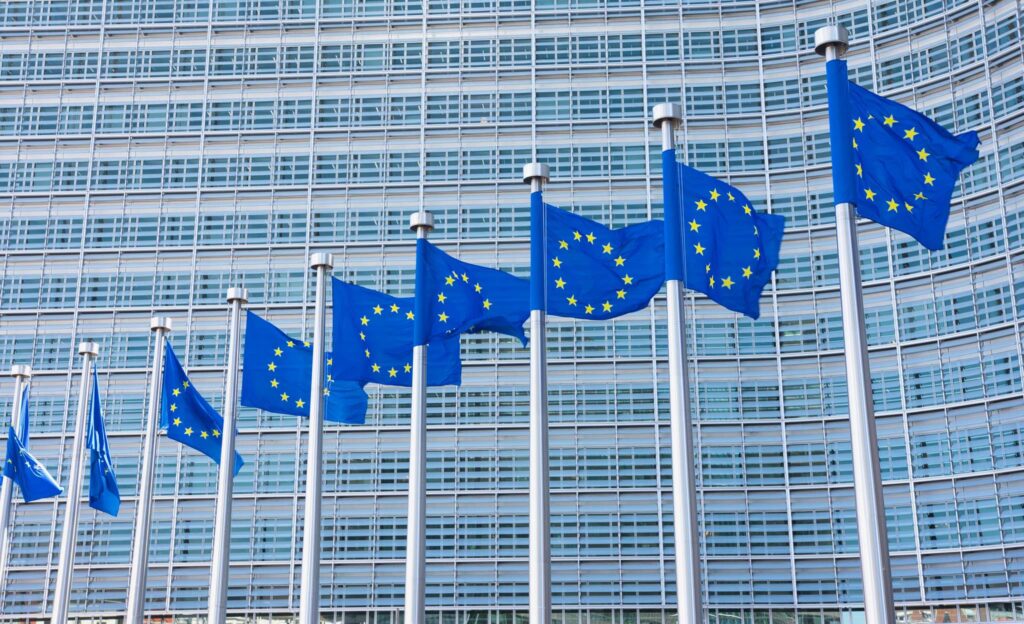EU sanctions Sudanese commanders and entities ‘over rights abuses’

The EU headquarters in Brussels (File photo: Kyle Wagaman - Creative Commons)
The European Union imposed sanctions on two Sudanese individuals and two financial entities last week, for “serious human rights violations and threats to the peace, stability and security of the country,” in its fourth package of restrictive measures since the outbreak of war in April 2023.
The listed individuals include Abu Agla Keikil, commander of the Sudan Shield Forces, and Hussein Barsham, a field commander in the paramilitary Rapid Support Forces (RSF).
The EU Council stated that Keikil “is deemed responsible for targeting the [El] Kanabi*, a historically marginalised group comprised mainly of Nuba and other African tribes.”
Once a senior RSF commander in El Gezira, Keikil defected in 2024 and aligned his Sudan Shield Forces with the Sudanese Armed Forces (SAF). He had previously criticised Sudan’s civilian-led government and the Juba Peace Agreement.
In January, Radio Dabanga reported on the serious abuses committed by Keikil-aligned forces. In Wad Madani, video footage emerged of SAF and Sudan Shield fighters torturing a doctor with special needs in public, accusing him of RSF ties.
Human rights observers said the incident reflected a broader pattern of impunity. Journalist Mat Nashed commented: “Different uniform. Same impunity.”
Radio Dabanga reported in May that a drone strike killed nine people and injured 14 others at a Sudan Shield Forces camp in Jabal El Abaytor, Butana Plain, El Gezira. According to the group, the attack targeted several key facilities.
Sudan Shield has been active in military operations against the RSF in El Gezira, East Nile, White Nile, Khartoum, and Kordofan.
The EU also sanctioned Hussein Barsham for his role in RSF-led atrocities, including “targeted killings, ethnic violence, forced displacement and violence against civilians, particularly in Darfur and other conflict-affected regions.”
‘Two entities blacklisted’
Alkhaleej Bank, “largely owned by companies linked to family members of RSF Commander Mohamed Hamdan Dagalo,” which plays “an essential role in financing RSF operations.” The bank has been the target of previous sanctions by the US Department of the Treasury’s Office of Foreign Assets Control, for its alleged role in financing the RSF.
Red Rock Mining Company, involved in “facilitating the production of weapons and vehicles for the SAF,” and already sanctioned by the US and UK.
Those listed face asset freezes, bans on financial transactions, and EU travel bans.
The Council stated the measures reflect “the EU’s unwavering support for peace and accountability in Sudan,” adding: “The people of Sudan have a right to freedom, peace and justice.”
*The El Kanabi (Arabic plural of ‘camp’) is a name given to seasonal labourers (camp workers) in Sudan, in particular in central Sudan.
Many of them moved from western parts of the country, including Darfur, in the last century in search of work in the El Gezira Agricultural Scheme, set up by the British. The workers settled on the outskirts of villages and near irrigation channels and water banks. Others went to work on plantations in eastern Sudan.
As the successive El Gezira state governments considered the kanabi temporary workers, they did not provide many services. Their lives can be characterised by poverty and isolation, due to government policies and the discrimination they face based on ethnicity and culture from the surrounding population.
According to figures presented by Jaafar Mohamedein, secretary general of the Kanabi Congress, in 2018, nearly 2,500,000 kanabi were living in 2,095 ‘camps’ in El Gezira, making up 39 per cent of the total population of the state. In October 2020, the Kanabi Congress called for transforming their settlements in El Gezira and eastern Sudan into model towns and villages on state-owned lands.











 and then
and then